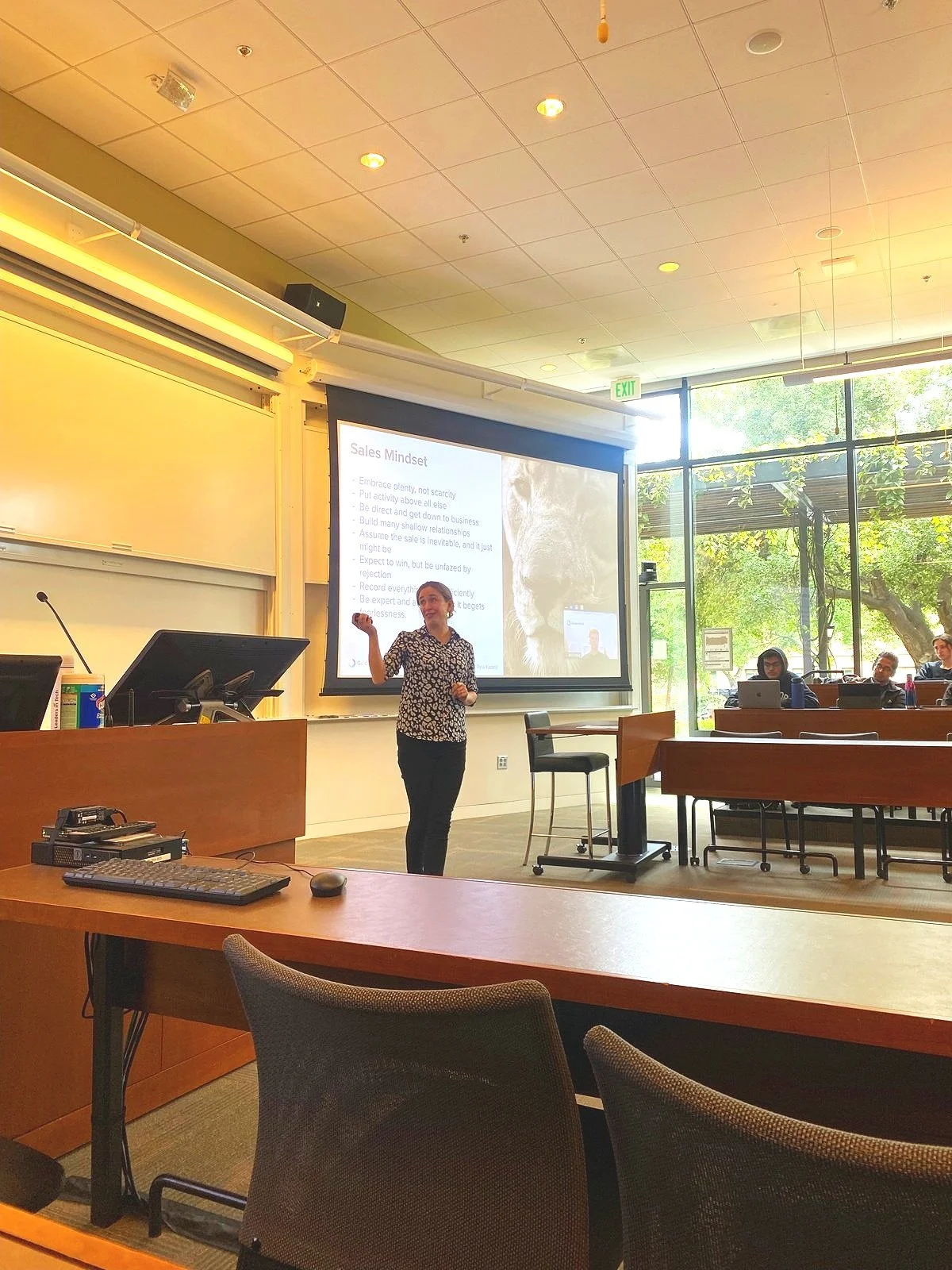
SCV Playbooks
Our favorite resources for company-building in climate. Curated guides, frameworks, and tools to help you navigate your climate venture journey.
Customer Discovery
5 resources
Credit: Dave Danielson
Credit: Marisa Reddy
Credit: NSF I-Corps
Credit: Rob Fitzpatrick
Credit: Wikipedia
Techno-Economic Modeling
5 resources
Credit: Eric Helfgott
Credit: Activate
Credit: Melissa Ball
Credit: Pinkowski & Cassady
Stanford Lab Space
4 resources
Credit: Stanford Doerr School of Sustainability
Credit: Stanford University
Credit: Stanford University
Credit: Stanford University
Sales and Marketing
6 resources
Credit: Lauren Dunford
Credit: Matt Eggers
Credit: Harvard Business Review
Credit: Pete Kazanjy
Credit: Khosla Ventures
Cap Tables
4 resources
Credit: Y Combinator
Credit: Y Combinator
Credit: AngelCalc
Credit: Venture Hacks
Fundraising
14 resources
Credit: Dave Danielson
Credit: Steph Mui
Credit: Y Combinator
Credit: Y Combinator
Credit: Bloomberg Beta
Credit: Sanjay Wagle
Credit: Sequoia Capital
Credit: Y Combinator
Credit: Venture Hacks
Credit: Venture Hacks
Credit: Various
Credit: Airbnb
Credit: Dane A. Boysen
Credit: Awesome! Inc.
Sources of Funding
37 resources
Credit: David McColl
Credit: Dave Danielson
Credit: Dave Kirkpatrick
Credit: Sightline Climate
Credit: Clean Energy Business Network
Early Exploration Grants
Credit: Stanford University
Credit: 1000 Gretas
Credit: Breakthrough Energy
Credit: StartX
Credit: SPIRE Stanford
Credit: VentureWell
Stanford-Specific Fellowship Programs
Credit: Stanford Graduate School of Business
Credit: Stanford Graduate School of Business
Credit: TomKat Center for Sustainable Energy
Credit: Stanford Graduate School of Business
Credit: Haas Center for Public Service
Fellowship Programs
Credit: Breakthrough Energy
Credit: Activate
Incubators and Accelerators
Credit: Greentown Labs
Credit: LACI
Credit: Maritime Blue
Credit: PCDWorks
Credit: Hax
Credit: Exelon Foundation
Credit: Techstars
Credit: Venture for ClimateTech
Credit: EPRI
Credit: Creative Destruction Lab
Government Funding
Credit: Climate Tech VC
Credit: Climate Tech VC
Credit: U.S. Department of Energy
Credit: U.S. Department of Energy
Credit: National Science Foundation
Credit: U.S. Department of Defense
Credit: California Energy Commission
Credit: TurboSBIR
Credit: Federal Grant Resources
Company Building Fundamentals
9 resources
Credit: Joel Moxley
Credit: The Climate Brick
Credit: Michael Porter
Credit: Hamilton Helmer
Credit: Peter Thiel
Credit: Peter Thiel
Credit: Eric Ries
Credit: Andreessen Horowitz
Credit: CB Insights
Board Meetings
6 resources
Credit: Grayson Zulauf
Credit: Sila Kiliccote
Credit: TechCrunch
Credit: Sequoia Capital
Credit: Jerry Neumann
Credit: O'Melveny & Myers
Product
3 resources
Credit: Blackblot
Credit: Cyclotron Road
Credit: Cummins
Policy
2 resources
Credit: Andreessen Horowitz
Credit: Breakthrough Energy
Finance
5 resources
Credit: Dave Rogers
Credit: Climate Tech VC
Credit: Corporate Finance Institute
Credit: Pivotal 180
Credit: Madison Freeman
Legal
9 resources
Credit: Jesse Lazarus
Credit: Cooley LLP
Credit: NVCA
Credit: Stanford Law School
Credit: Stanford Law School
Credit: Stanford Law School
Credit: Fenwick & West LLP
Credit: Fenwick & West LLP
Credit: Breakthrough Energy Ventures
IP
9 resources
Credit: Cleantech San Diego
Credit: Halotechnics, Inc.
Credit: Fenwick & West, LLP
Credit: Heliotrope
Credit: ARPA-E
Credit: Anonymous
Credit: Mark Stephenson
Credit: Anonymous
Credit: ARPA-E
Hiring
4 resources
Credit: Ilan Gur
Credit: David Weiden
Credit: Founder Institute
Credit: Holloway
Culture
4 resources
Credit: Bill Walsh
Credit: Netflix
Credit: eShares (Carta)
Credit: Khosla Ventures